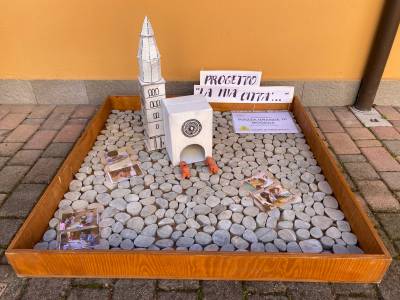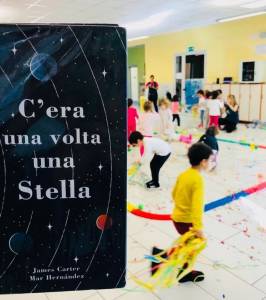The task of the senses is to communicate the existence and characteristics of the reality that we perceive, both internal and external to us.
A project with the aim of knowing and therefore using our senses to explore the world around us. Through specific activities, children discover the external and internal world.
Most of the senses have one or more bodily locations on which to rely to carry out their "work", the study of the senses is one of the most unexplored chapters so far in official science. Each of them works in close collaboration with the others, in fact within each perception several senses collaborate with each other. For example, touch requires movement to act. Every sense, if well cultivated in childhood, can have its own metamorphosis in terms of internal quality in adulthood.
BEYOND THE 5 SENSES...
There are also other senses and faculties that project aspects contained within us outside us, towards external reality. The latter are not receptors, but projectors in which reality is perceived as a return wave. They are the senses through which we can give meaning to things and which allow us to determine and access a broader reality.
The sense organs are faculties of our being, active in man and which we can therefore further develop.
Touch
Touch has the task of making one's boundaries and shape perceived, it is in close collaboration with the sense of movement, balance and life. In early childhood, through touch, the child develops the very important knowledge of himself. Through the sense of touch we do not reach the world, but we place ourselves in front of the world and create a boundary with respect to it.
"We find it in our hands, but we can also feel it with other parts of the body: for example with our feet we feel the floor, with our cheeks we can feel our father's beard..." (A. 5 years)
"When mom hugs me, she touches me and feels it." (P. 5 years)
The view
The bodily seat of sight is the eye, which is a complex organ because the brain's re-elaboration of the image it perceives is complex. The visual process generates an impression that concerns both the sphere of feeling and the cognitive one.
"It means seeing, because otherwise we can't see anything. That then we can be blind, that when we are blind we can't see anything..." (B. 5 years)
The sense of smell
Smell is connected to the element of air and breathing. Through breathing, smells and perfumes enter us, thus creating a border position between interiority and exteriority. Smell, like taste, can be subject to strong polarities: from the thrill of a perfume to the nausea of an acrid smell... the smell of something that immediately brings us back to the memory of even very distant experiences....
"it's the smell that we smell from our nostrils. We can smell the scent of spring, the scent of flowers... for me, my favorite smell is that of sunflowers, because you can smell one of those smells... like smelling spring" (T. 5 years old)
Hearing
The ear perceives the nature, the specific quality of bodies, or their individuality through sound. In fact, I can understand the quality of a body by how it resonates. Hearing also perceives a person's mood from the tone of voice. The musical experience connected with dance involves man in his entirety.
"Hearing is hearing... the words of others and music" (V. 5 years)
The taste
The seat of taste is in the mouth and has many characteristics common to smell: both are cognitive senses that provide information on the reality of things, through sensations of pleasure and unpleasantness. Taste is connected with eating which is an important moment from many points of view and reveals the style, traditions and mentality of people.
"Taste is feeling something in the mouth." (L. 5 years)
"We have many dots on the tongue that are used to feel tastes..." (V. 5 years)
The sense of movement, the sense of words, the sense of life
The sense of movement does not only mean being able to move, but also and above all the perception of being able to do so, thus achieving mastery of one's body.
The sense of one's own movement shows us that we possess a dynamic faculty with which we can express ourselves through the body and can therefore move.
The meaning of words is that activity that allows us to listen to a language and perceive that someone is speaking. It is the sense of communication, the sense that creates contacts. When we master a language, it becomes "transparent" to us when we hear it spoken and can see through it. We can follow what is said and meet the other, thus giving life to the relationship.
Through words we can also understand the feelings and emotions of others and share part of their feelings.
The meaning of life is that sense through which we feel our life within ourselves. Unfortunately, often this sense "activates" only when life itself is disturbed, when we get sick, when this or that hurts.
It is precisely at that moment that the meaning of life arrives and indicates the malaise to us.
The meaning of life is a sense organ with which some are more connected than others because it is more developed in one person than in another.
Since many things are "covered" by the other senses, it is not so easy to perceive the meaning of life in isolation.
"If I say beautiful words it's like if I caress them and then after my water the one inside me becomes all beautiful like a diamond... If instead if when you say bad things and someone it's like when you give a slap... it hurts because bad words hurt and then you become ugly..."
"That is, we have to be careful and listen... for example when we are sad life tells us that... there is life and when you are happy and if you are sad it is a bit like being sick..."


